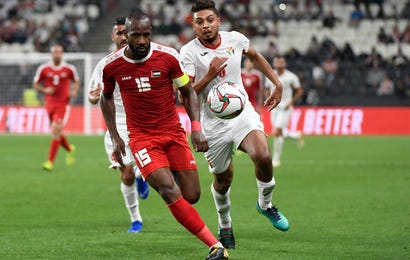Palestine officially eliminated from the 2019 AFC Asian Cup

Forty-eight hours after the final whistle blew in Abu Dhabi, Palestine's Asian Cup hopes are finally dead and buried. There will be no Lazarus type comeback for the team who received a lifeline courtesy of a late, late goal by Tom Rogic against Syria.
All in all, the mission for Palestine was to find a way to win a game at the Asian Cup. They may have av…


